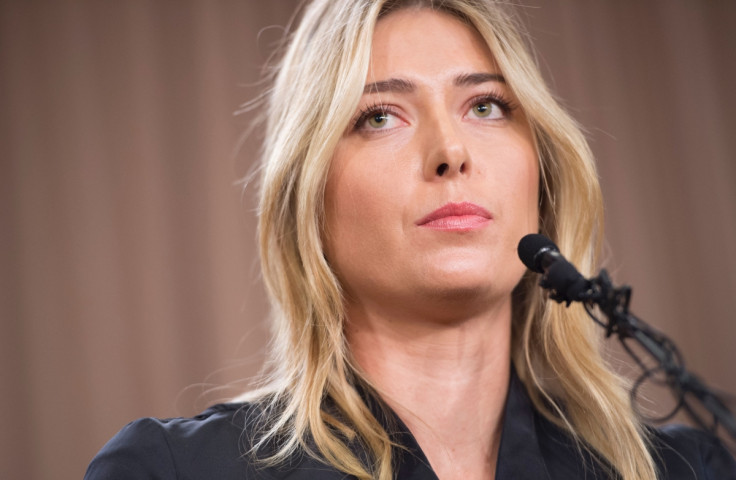Maria Sharapova: Nike suspend sponsorship deal over meldonium test as ITF confirm sanction

Nike has announced it has suspended its sponsorship deal with Maria Sharapova after the tennis star revealed she failed a drugs test at the Australian Open. Sharapova, the highest paid sportswoman on the planet, will also be provisionally suspended from March 12, the International Tennis Federation (ITF) has confirmed.
The 28-year-old tested positive for meldonium, which was only banned by the World Anti-Doping Agency as of 1 January. Sharapova admitted she had been taking the substance since 2006 for health issues.
"We are saddened and surprised by the news about Maria Sharapova," a Nike statement read. "We have decided to suspend our relationship with Maria while the investigation continues. We will continue to monitor the situation."
Swiss watchmaker Tag Heuer have also announced they will not be renewing their contract with the tennis star.
A statement from the ITF meanwhile confirmed her suspension. "On 26 January 2016, Ms Sharapova provided an anti-doping sample to the TADP in association with her participation in the 2016 Australian Open. "That sample was analysed by a World Anti-Doping Agency (WADA) accredited laboratory, which returned a positive for meldonium, which is a prohibited substance under the WADA Code and, therefore also the TADP.
"In accordance with Article 8.1.1 of the TADP, Ms Sharapova was charged on 2 March with an Anti-Doping Rule Violation. Ms Sharapova has accepted the finding of meldonium in her sample collected on 26 January.
"As meldonium is a non-specified substance under the WADA (and, therefore, TADP) list of Prohibited Substances and Prohibited Methods, Ms Sharapova will be provisionally suspended with effect from 12 March, pending determination of the case.
Speaking at a press conference on Monday 7 March, five-time Grand Slam winner Sharapova took "full responsibility" for her positive drugs test.
"I know that with this I face consequences and I don't want to end my career this way. I really hope that I will be given another chance to play this game," an emotional Sharapova told a news conference in Los Angeles.
Despite the possibility of a looming ban, Shamil Tarpischev, president of the Russian Tennis Federation, has branded the failed drugs test as nonsense and insists Sharapova will still be able to compete at this summer's Olympic Games in Rio de Janeiro.
"I think that it's nonsense. Athletes take what their physiotherapists advise them," Tarpischev told Russian news agency TASS.
"I believe that Sharapova will still have a chance to play at the Olympics though we will see how things are going to develop."
© Copyright IBTimes 2025. All rights reserved.






















